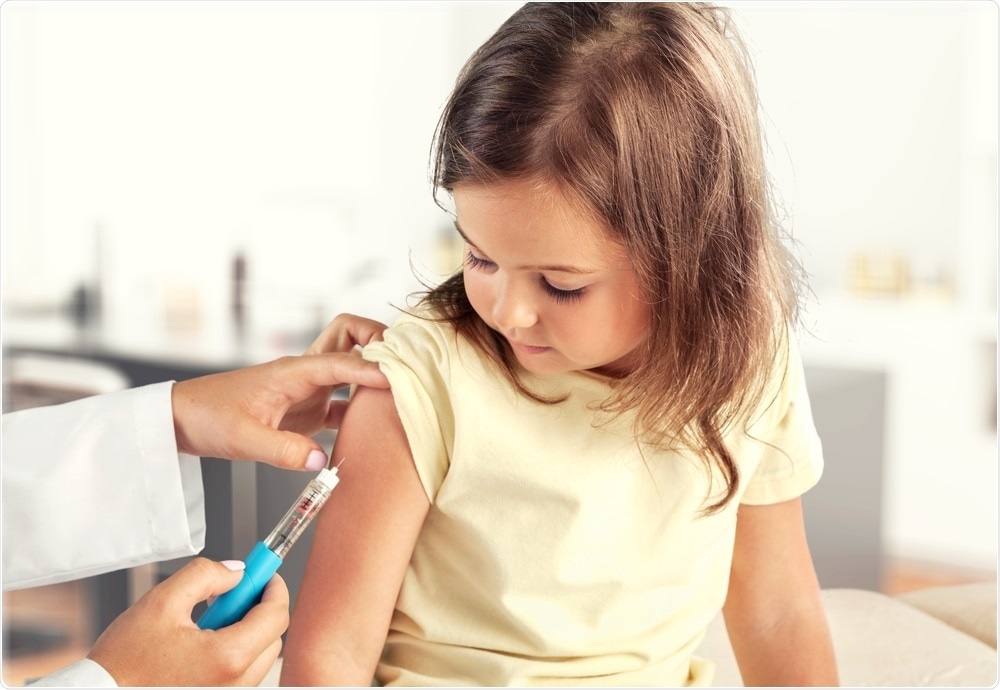
Measles vaccination rates are a 'public health time bomb'
The number of measles cases is on the rise globally, with many countries seeing rates that surpass annual rates for the past century. Health officials from around the world say the number of people rejecting immunization as part of the “anti-vax” movement represents a growing and alarming public health threat.
 Billion Photos | Shutterstock
Billion Photos | ShutterstockMeasles is a highly contagious viral disease that, in severe cases, can lead to serious health complications including seizures and infections of the lungs, eyes and brain that cause pneumonia, blindness and encephalitis.
In 2018, the number of cases reported in England more than tripled, to 966, compared with 259 in 2017. According to the WHO, the number also tripled across Europe, to 82,596.
Vaccinating young children against measles has saved millions of lives worldwide and health experts recommend that children receive two doses to confer full protection against the disease. In many countries, the measles, mumps, and rubella (MMR) vaccine is given to babies at around age one and the second is given at around age three to four. The NHS advises that all children receive the MMR vaccine around the time of their first birthday and then just before they start school.
A ‘public health time bomb’
An analysis by UNICEF has now revealed that more than half a million children in the UK did not receive a measles vaccine between 2010 and 2017 and that globally, 169 million children missed the first dose of the vaccine.
NHS chief, Simon Stevens, warns that the number of measles cases in the UK has almost quadrupled in just one year and that people rejecting the vaccines represents a “growing public health time bomb.”
According to UNICEF, the number of children who did not receive a first dose between 2010 and 2017 in the U.S. was 2,593,000. In France and the UK, the corresponding figures were around 600,000 and 527,000, respectively, and in Nigeria, four million children missed out on the first dose.
UNICEF blames the inadequate vaccination rates on a mixture of complacency, misinformation, skepticism about immunization and a lack of access to jabs.
The charity also warns that estimates regarding uptake of the second dose are “even more alarming.” In sub-Saharan Africa, a second dose had not been introduced in twenty countries, putting more than 17 million infants per year at an increased risk of developing measles. Globally, 85% of children received a first dose of the vaccine, but only 67% received a second dose.
Cases of measles have been rising steadily in the USA since 2000
A shocking 695 cases of measles have been reported in the USA since January this year, according to the weekly CDC report. In 2000, the disease was said to be eliminated in the USA and since then, the highest number of total cases in one year was 667 in 2014 and at no other point this century has the number reached more than 400.
New York health officials warn that pushing the national figure closer to the 700 mark has made 2019 the worst year for measles since 1994, when the number of instances was 963.
Director of the Arkansas Department of Health, Nate Smith, says opposition to vaccines has created a significant public health concern since the illnesses they protect against are no longer occasional cases that have been imported by people after traveling:
The UK is experiencing a similar rise in cases
In the UK, a recent report by Public Health England (PHE) showed that the number of measles cases in Greater Manchester is on the rise, with 47 cases in 2019, compared with only three in 2018 and seven in 2017.
Across the whole of North West England, only 22 cases were confirmed in 2018 and 43 were confirmed in 2017, showing that Greater Manchester has already seen rates that surpass totals for the previous two years across the entire region.
PHE representative, Will Welfare, says that measles cases are mainly seen in unvaccinated children. The proportion receiving a vaccination is “not high enough,” he says − a problem that has “really been illustrated” by the huge increase in cases during this recent outbreak.
Doctors are encouraging families to ensure that their children get vaccinated against the highly infectious disease. The MMR vaccine does protect against infection, says Mr. Welfare, but erroneous research linking the vaccine to autism has led to unfounded concerns and a reduction in uptake, even though “we have shown that the MMR vaccine is safe and incredibly effective."
Vaccination is key
The UK government’s chief medical advisor Dame Sally Davies is also urging parents to ignore “fake news” on social media and take their children to get vaccinated.
Executive director at UNICEF, Henrietta Fore, warns that the measles virus will “always find unvaccinated children: "If we are serious about averting the spread of this dangerous but preventable disease, we need to vaccinate every child, in rich and poor countries alike."
Professor Bate Kampmann from the London School of Hygiene and Tropical Medicine describes the latest figures as a "wake-up call" and advises that measles is highly infectious, even before symptoms appear, meaning it cannot simply be “kept away.”






















.png)












No hay comentarios:
Publicar un comentario